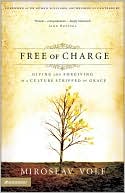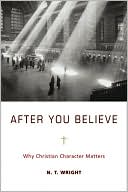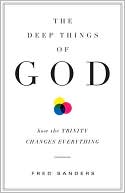Therefore, just as sin came into the world through one man, and death through sin, and so death spread to all men because all sinned— 13 for sin indeed was in the world before the law was given, but sin is not counted where there is no law. 14 Yet death reigned from Adam to Moses, even over those whose sinning was not like the transgression of Adam, who was a type of the one who was to come.
15 But the free gift is not like the trespass. For if many died through one man's trespass, much more have the grace of God and the free gift by the grace of that one man Jesus Christ abounded for many. 16 And the free gift is not like the result of that one man's sin. For the judgment following one trespass brought condemnation, but the free gift following many trespasses brought justification. 17 For if, because of one man's trespass, death reigned through that one man, much more will those who receive the abundance of grace and the free gift of righteousness reign in life through the one man Jesus Christ.
18 Therefore, as one trespass led to condemnation for all men, so one act of righteousness leads to justification and life for all men. 19 For as by the one man's disobedience the many were made sinners, so by the one man's obedience the many will be made righteous. 20 Now the law came in to increase the trespass, but where sin increased, grace abounded all the more, 21 so that, as sin reigned in death, grace also might reign through righteousness leading to eternal life through Jesus Christ our Lord. (Romans 5:12-21)
So I’m guessing that most of the readership of this blog are not real big Jane Austen fans. And there is probably little chance that you’ve seen say, Pride and Prejudice, and even less that you have read it. Well, I have, seen it that is. Two versions. And for the record I’m a Jane Austen fan. Live with it. So here is a little lesson on 18th century romances. Family shame is a big thing. In Pride and Prejudice, for example, the youngest daughter, Lydia, runs off with the philandering Mr. Wickham, which threatens the ruin of her four older sisters. Mr. Darcy would never be able to marry Elizabeth (the eldest sister and heroine) while she has a sister living in disgrace. This all seems very absurd to us. Why should one daughter’s indiscretion bring ruin upon any of the other daughters? I would suggest that the reason this logic makes no sense to us is the same reason many Western minded people find Romans 5:12-21 very difficult to swallow.
I’m not saying that all of 18th century pride and prejudice was good and right. But I do believe that we need to rethink our view of communal responsibility. Our culture is so extremely individualistic that the suggestion that a group of people should receive the consequences of one person’s failure is utterly foreign. Statements like “Sin came into the world through one man, and death through sin, and so death spread to all men,” or “many died through the one’s man trespass,” or “one trespass led to condemnation for all men,” seem harsh and unbelievable. But is our view the right view? Personally, I think Americans live in the midst of contradiction. We are a culture of individuals, but we are also a culture of victims. A culture in which it is okay, even right and proper, to blame my past, parents, peers, puberty, and many other things that don’t start with “p” for my mistakes. What’s that about? Does an individual’s actions lead to consequences for others or not? Is there communal responsibility or not? If the Bible says, “You inherit the consequences of Adam’s sin,” we’re appalled. But if Oprah does a show on depressed mothers who are victims of childhood sexual abuse, we grab the tissues. Maybe we need to be a little more open-minded on the issue and observe that American individualism is not the historical norm. In fact, in most of history and in most cultures, they have had a much more balanced approach to community vs. individual responsibility. If we can’t come to terms with our extremist individualism, we’ll never comprehend this passage.









No comments:
Post a Comment